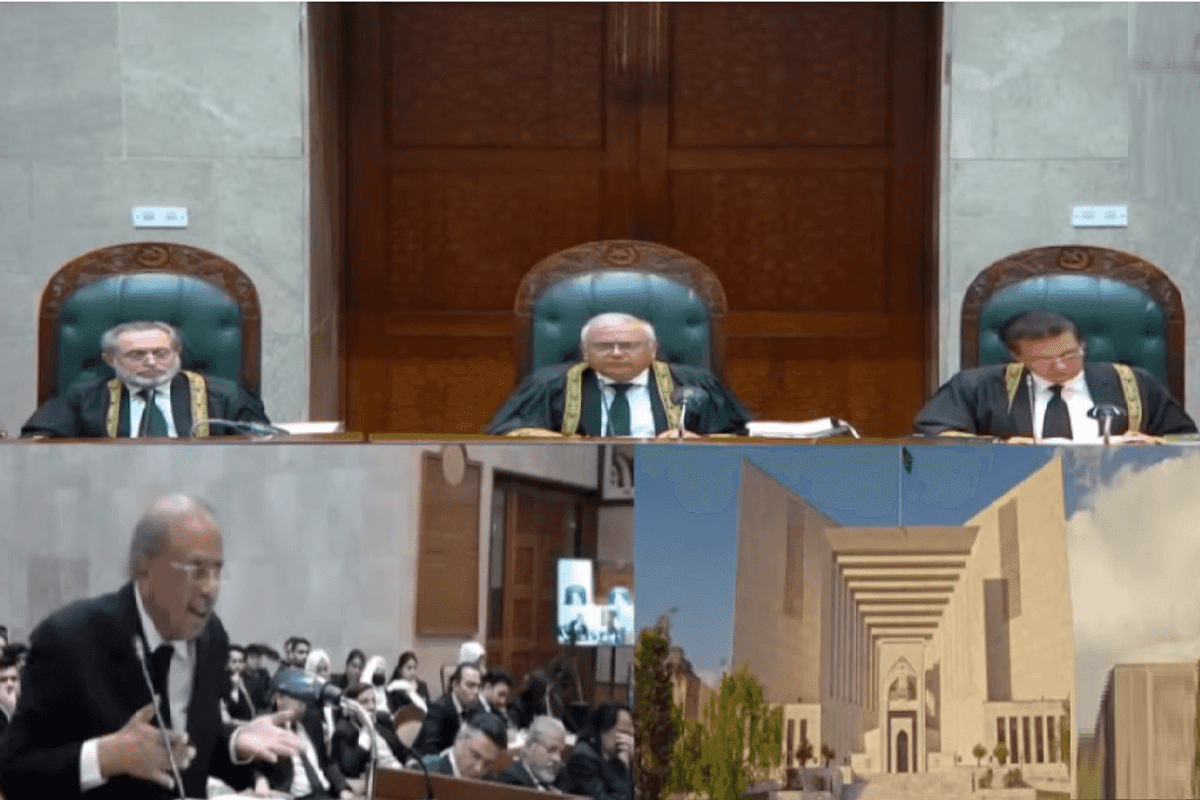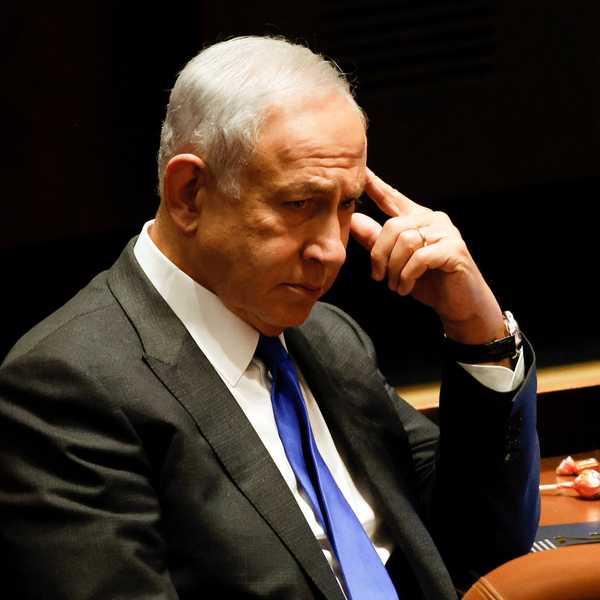Pakistan judge objects to retaining current bench in constitutional amendment case
As hearing on 26th amendment continues, Pakistan's apex court deliberates whether case should now be heard by full bench

Asma Kundi
Producer, Islamabad
Asma Kundi is a multimedia broadcast journalist with an experience of almost 15 years. Served national and international media industry as reporter, producer and news editor.

A hearing into pleas against 26th constitutional amendment held at the Supreme Court of Pakistan on Thursday.
Screengrab
A judge of Pakistan’s Supreme Court questioned on Thursday whether judges appointed after the passage of the 26th constitutional amendment should remain on the current bench hearing challenges to that very law, sparking debate over judicial composition and independence.
Justice Musarrat Hilali remarked that the court should “go back to square one” - to the position before the 26th amendment - and reassess the situation from that point.
An eight-member constitutional bench, headed by Justice Aminuddin Khan, resumed hearing on petitions challenging the 26th constitutional amendment, which introduced sweeping changes to Pakistan’s judicial framework.
During the ongoing proceedings, the central question before the court is whether the same bench that heard the case before the amendment should continue, or if the matter should now be referred to a full court comprising all 24 judges.
Passed by parliament and signed into law on October 21, 2024, the 26th amendment established a new parliamentary committee-based mechanism for selecting the Chief Justice and fixed a three-year term for the office - provisions that have drawn intense scrutiny from legal circles and opposition parties.
Since its enactment, the amendment has faced multiple legal challenges in the Supreme Court and provincial high courts. Petitions have been filed by political parties, civil society groups, and bar associations. The Pakistan Tehreek-e-Insaf (PTI) has sought to annul major sections of the law, arguing that it undermines judicial independence and violates the Constitution’s basic structure.
The Supreme Court began hearing these challenges in late 2024, with the most recent proceedings held in January 2025.
The hearing
During Thursday’s hearing, Justice Ayesha Malik questioned whether any legal obstacle existed to forming a full court. Justice Muhammad Ali Mazhar raised a jurisdictional concern, asking: “Does the current eight-member constitutional bench even have the jurisdiction to constitute a full court, especially when the situation is now different?”
Senior lawyer Munir A. Malik, representing the Balochistan Bar Council, responded that it makes no difference whether the bench is constitutional or regular, asserting that the current bench holds the authority to decide the matter.
He argued that directing the formation of a full court would not violate Article 191A, as the constitutional bench possesses judicial powers to make such an order.
Justice Ayesha Malik then asked whether Munir A. Malik wanted the constitutional bench itself to exercise that authority, noting that the Court has often relied on the Constitution rather than amendments when interpreting its powers.
Justice Muhammad Ali Mazhar reiterated that, given the changed circumstances, it must be clarified how a constitutional bench can create a full court under Article 191A.
The hearing was adjourned till Monday, when discussions on bench composition and constitutional interpretation are expected to continue.
More than a dozen petitions challenging the amendment have been consolidated by the court, with around half a dozen lawyers representing different petitioners scheduled to present their arguments as proceedings resume.







Comments
See what people are discussing